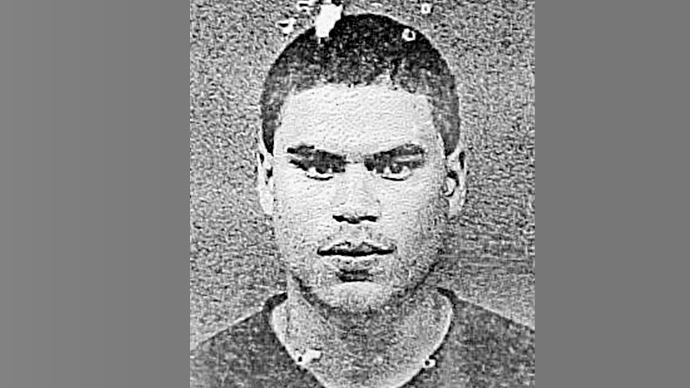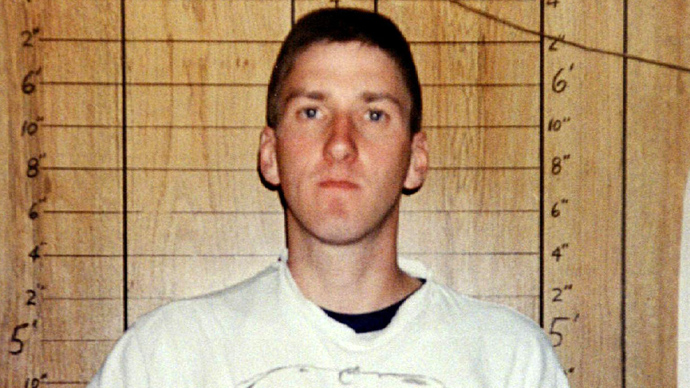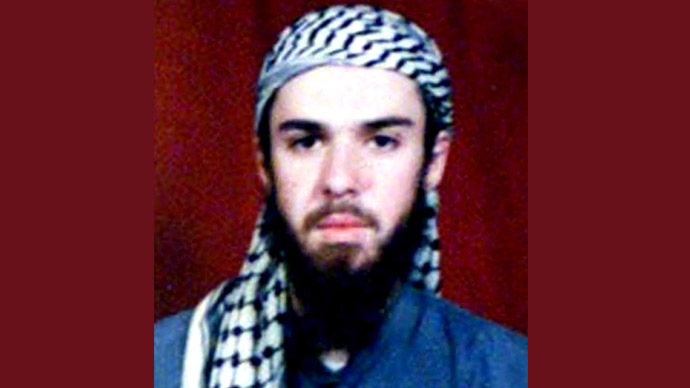‘US domestic security turned massive failure’
Since 9/11 the United States spent over $700 billion on national security but as the Boston tragedy showed the money went to nothing, American lawyer Jesselyn Radack told RT.
The former ethics adviser to the United States Department of Justice believes Washington will increase surveillance after this attack, which would be myopic.
RT:The US said it will charge the Boston bombing suspect with – possession of weapons of mass destruction, what is that?
Jesselyn Radack: I wish I could tell you more about that, but I haven’t actually seen those charges leveled against anybody. Obviously they are considering the WMD to be the bombs, which they termed ‘improvised explosive devices’ – a military kind of term. WMD sounds pretty horrific.

RT:They were talking about home-made bombs, pressure cookers, and now it’s WMD. How is that even possible, when you talk about home-made bombs?
JR: I honestly believe that it’s because the suspect here is Muslim. Obviously there have been a number of white people who’ve committed massacres lately in Colorado or Newtown, Connecticut. None of those people were charged with terrorism or terrorism-type charges.
RT:After the bombings lots of media and people were discussing the possible connections of the suspects with other countries. What do you make of that?
JR: I think immediately there was a desire to frame this as an act of terrorism and therefore to try to put the label on these men that they were Islamic jihadists. The only positive spin I could give here is that people were trying to distance themselves from it to make it feel more normal, but the more sinister interpretation is that obviously we have a lot of islamophobia and anti-Muslim bias in this country as evidenced by the fact that the suspect is treated as a terrorist, while other people got different charges.
Reversing the usual presumption
RT:Because of the only suspect alive Dzhokhar Tsarnaev’s background there were a lot of arguments leading up to today. First, reading his rights, then charging him as an enemy combatant and now other arguments about his rights and interrogation. Where is the legal system in all of this?
JR: The legal system should never put up with that. I think most reasoned people knew he should be mirandized. Maybe there was a small window during which they could ask him about immediate public safety concerns. They were trying to call him an enemy combatant and that is the reason why they would not have to mirandize him. We’ve seen it in other cases, for instance, with José Padilla. They called him an enemy combatant and he didn’t get to see a lawyer for some three-and-a-half years. So all along there has been this effort to treat him differently than any other criminal, who should be tried in a federal criminal court.

RT:Do you think it’s his background that was leading to this?
JR: Not even so much of his background as immigrating from Chechnya. I think it was more discovering that he and his brother were both Muslim and discovering that the defendant’s older brother had been watching radicalized video propaganda. I actually watch the same stuff as part of my job in national security and human rights so that doesn’t necessarily mean that you are a terrorist.
RT:Russia tried to warn the US that they should check into this, but the minute the news came out everybody was talking about his background, some people were even confusing Chechnya and the Czech Republic. What do you make of this?
JR: I think it was a massive ignorance on the part of Americans in terms of both geography and religion. Islam is a peaceful religion. It doesn’t believe in bloodshed. Again it was to immediately put this person in the category of ‘others’. Normally we operate on innocent until proven guilty in this country, but for this suspect they are reversing the usual presumption and that was clear from the get-go. And apparently the FBI failed because Russia tipped off the FBI years ago that they perhaps should be concerned with the elder brother.
RT:Certainly the US didn’t do anything about it and a blame game started soon after the bombings. They were talking about him and his brother being in the US for just a short period of time, not having lived in the US, which makes the story completely different.
JR: It clearly does. The narrative that they tried to
feed everyone with as if they’ve recently come to the US, they were
radical Islamic jihadists. And then it turned out that the suspect
came here when he was 9 years old, and then you get Senator
Grassley saying that we need to be tougher on immigration. But what
are you going to do, ask 9-year-olds if they have a propensity for
terrorism? And the younger brother seemed to be following the older
brother, who apparently was more radicalized.

RT:Do you consider this as a case of home terrorism since they’d been here for a long time?
JR: I would in terms of the Oklahoma City bombings by Timothy McVeigh. But I don’t think he was actually charged with anything like possessing WMD even though he improvised filling a truck with fertilizer and causing far more deaths by an order of magnitude compared to the three people that unfortunately died in Boston. So you can call it domestic terrorism by the charges of McVeigh certainly didn’t sound war-like.
$700 billion did not help
RT:After 9/11 the US increased its domestic security yet something as big as the Boston bombings happened. Has the US failed?
JR: I believe this was a massive failure of the surveillance state that we’ve created in America. Since 9/11 we spent over $700 billion on national security and a lot of that is surveillance with video cameras, with massive date collection, with fusion centers, and none of those helped to deter or detect any terrorist plot. And while the surveillance video was useful in reconstructing what happened it didn’t prevent it.
RT:Do you think the US will increase surveillance after this attack?
JR: Unfortunately I think that would be a myopic reaction in America. Not to say why did surveillance fail to detect but rather to have even more surveillance, which would be a really unfortunate outcome.
RT:The US seemed divided over the legality of the procedures. While some congressmen called the suspect enemy combatant others tried to say there is the constitution and that one should stick to that. Where do you think is this going to take the debate?

JR: We’ve been having this debate since 9/11. I happened to be the whistleblower in the case of American Taliban John Walker Lindh, and that was a few months after 9/11. And back then they were talking whether or not to charge him, to call him an enemy combatant or an unlawful belligerent, and whether or not to mirandize him. When I eventually blew the whistle it was on the fact that they would not let him see his lawyer. And when they did mirandize him they said that there are actually no lawyers in Afghanistan. So this debate has been going on. I think that law is pretty settled. You can’t just designate someone in America an enemy combatant and do with him whatever you want. You have to go to court first. And I think Padilla’s lawyers understood that this was going eventually to end in court and that’s why they finally allowed him counsel and charged him.
RT:Who is going to win such debate?
JR: Right now unfortunately the people who’ve been dismantling our constitution will lose. I think there will be renewed measures in Congress for designating people as enemy combatants and new definitions of terrorism.
RT:Do you think there will be more islamophobia in the US after these incidents?
JR: Unfortunately I do, because as you noted from the very beginning, narrative started to form, they placed these suspects into another camp and particularly into a terrorist camp. President Obama initially was very careful not to call this an act of terror and not to use that word, but the next day he was calling it an act of terror. And there started to be rumors that having come from Chechnya, which has a large Islamic presence but not normally associated with Al-Qaeda, they got radicalized. I feel that from the very beginning that was the best case scenario in a lot of people’s minds to have them be Muslims, who became radicalized and did this part of jihad. I feel this will only increase people’s tendencies towards islamophobia.
The statements, views and opinions expressed in this column are solely those of the author and do not necessarily represent those of RT.












